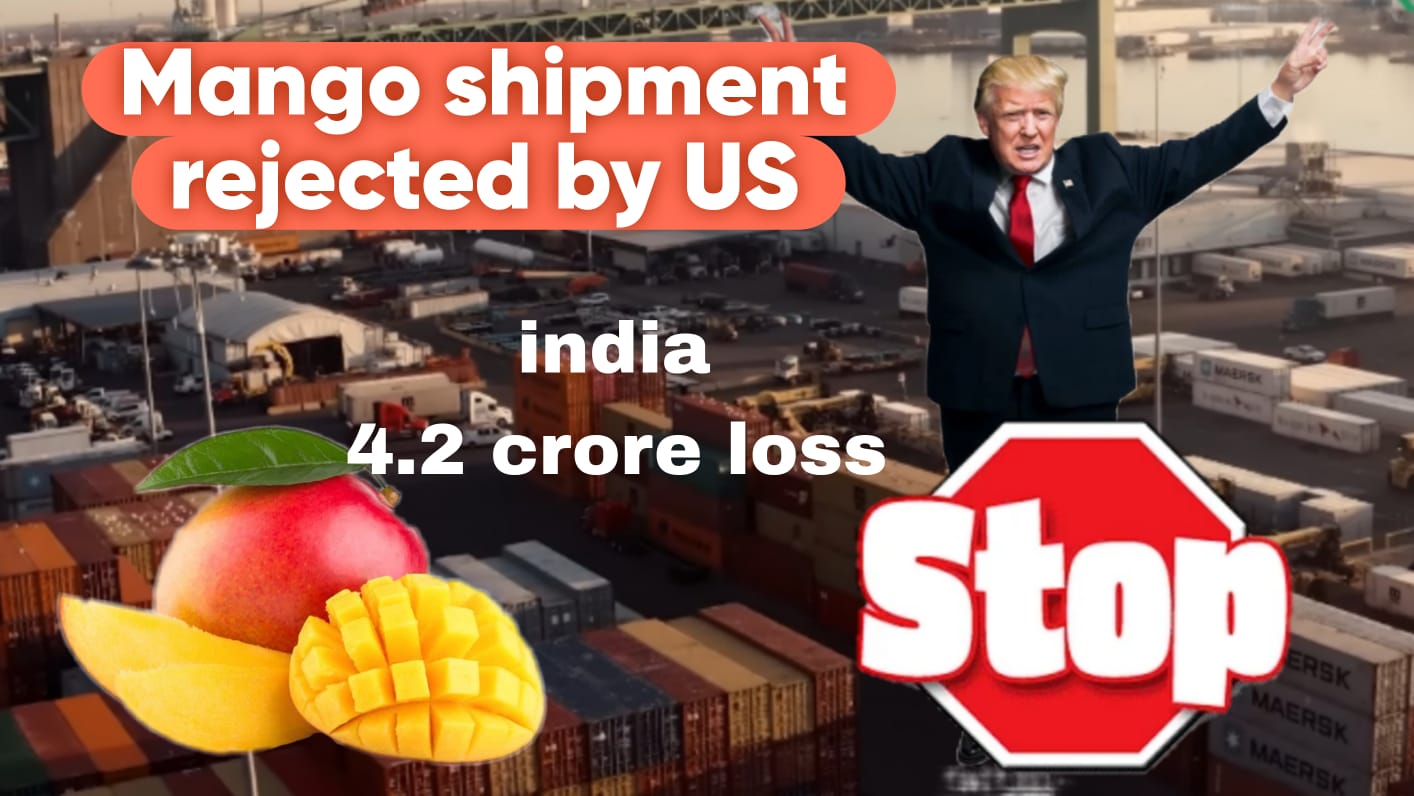Mango Export Hit Hard: 15 Shipments Rejected by USA Due to Documentation Errors
🚫 India’s Mango Export Shipments Rejected by the US – What Went Wrong?
Published: [25/05/2025]
Category:News
🥭 A Bitter Summer for India’s Sweetest Fruit
Summer is the season of mangoes in India — especially the world-famous Alphonso and Kesar varieties. But this year, the sweetness of the season turned sour for many exporters when the United States rejected 15 shipments of Indian mangoes.
This wasn’t just another export hiccup. It resulted in an estimated loss of ₹4.2 crore (~$500,000 USD), causing serious concern in India’s agri-export ecosystem.
📦 What Exactly Happened?
Fifteen premium mango shipments — including Alphonso and Kesar — were exported from India to the USA. These were treated with USDA-approved irradiation processes in New Mexico to eliminate insects and pathogens.
However, when the shipments arrived at Los Angeles, Atlanta, and San Francisco airports, they faced a major hurdle — document errors.
US Customs and Border Protection (CBP) found discrepancies in the PPQ Form 203, which is a mandatory document for fresh produce entry into the United States.
Due to incomplete or mismatching information, all the shipments were either destroyed or sent back, incurring massive logistical and financial losses.
💸 What Was the Impact?

The total estimated value of these 15 mango shipments was around $500,000 USD (₹4.2 crore). These mangoes were mostly sent on a pre-order basis, meaning buyers were already lined up.
With the shipments returned or destroyed:
- Exporters lost immediate revenue.
- Their brand reputation in the US market took a hit.
- It has affected future business trust and client relations.
🇺🇸 Was the US Being Too Harsh?
Not really. The United States has strict import regulations, especially for food and agricultural products. The rejection wasn’t due to quality — it was a paperwork issue.
US CBP followed standard protocol. Even minor documentation errors can lead to shipment rejection. While disappointing, this incident highlights a much-needed area of improvement in India’s export system — professional, accurate documentation.
Read Also⭐⭐⭐
Indy 500: Speed, Drama, and History at the Brickyard
📉 Long-Term Impact on India’s Mango Exports
This incident is not just a loss but also a wake-up call. It exposed existing flaws in India’s supply chain management, particularly in:
- Documentation accuracy
- Process standardization
- Inter-agency coordination
If these issues aren’t resolved, India could risk losing key markets and damaging its global reputation.
However, if taken as a learning opportunity, this can be the beginning of a stronger, more resilient export system.
🔧 What Needs to Change?
To prevent such costly mistakes in the future, India must:
- Digitize and automate documentation systems
- Ensure mandatory training for exporters and supply chain handlers
- Enforce standard operating procedures (SOPs) across all export stages — from farms to ports
- Create claim mechanisms for such incidents
- Encourage diplomatic support for faster resolution
Indian agencies like APEDA and NPPO must audit and monitor each stage of the export process — from irradiation to customs clearance — with zero margin for error.
🌍 India’s Global Mango Potential
Despite the setback, there’s a silver lining. India is still the world’s largest mango producer, exporting over 200,000 metric tons annually to markets including the USA, Europe, Middle East, and Southeast Asia.
With better processes, India’s mango export industry could become a ₹10,000 crore vertical, elevating not just revenue but also rural employment and global trade influence.
📣 Final Thoughts
This isn’t just about mangoes. It’s about how serious India is when it comes to international business compliance.
If we want to compete in global markets, our quality + paperwork = 100% flawless.
Let’s take this incident as a turning point and return next season with better preparation, smarter systems, and stronger confidence.
💬 What do you think about this situation?
Share your thoughts in the comments below.
And for more updates on Indian exports and global trade news, stay tuned to TrendBuzz.tech.




Leave a Reply